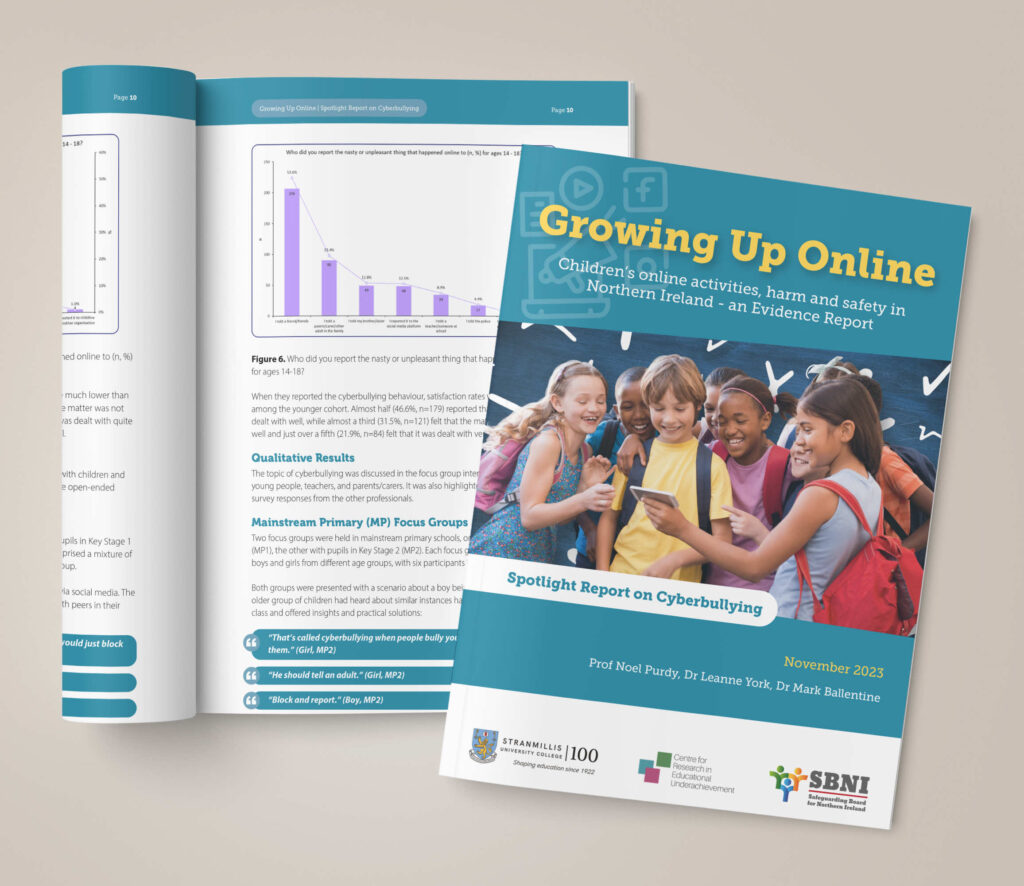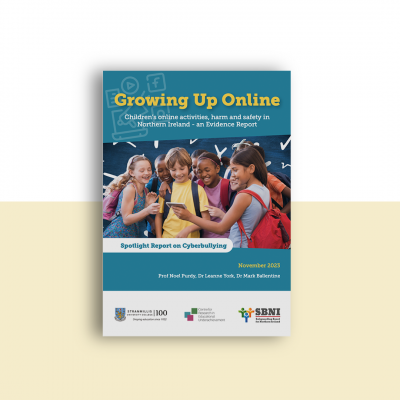This report highlights the nature and extent of online bullying behaviours among children and young people aged 8-18 in Northern Ireland. It draws on key insights from a large scale mixed methods research project called Growing Up Online: Children’s online activities, harm and safety in Northern Ireland, funded by the Safeguarding Board for Northern Ireland (SBNI) and conducted by a team from the Centre for Research in Educational Underachievement at Stranmillis University College, Belfast.
The report findings highlight a wide variety of online bullying behaviours experienced by children and young people, ranging from mean or nasty comments being made or sent to them and being excluded from WhatsApp groups, through to online blackmail, threats and being told to harm or kill themselves.
Among the key findings from the 6500 survey responses and interviews with almost 100 children and young people are that:
- A total of 13% of children aged 8-13 reported that someone had been mean to them online within the previous two months, with a higher incidence among girls than boys.
- Girls aged 14-18 were more likely than boys to report that mean or nasty comments had been made about them or sent to them, more likely to have had lies or rumours told about them, and more likely to have been excluded from an online group.
- Boys aged 14-18 were however more likely than girls to report that someone had tried to blackmail them, that they had been threatened online, or that their account had been hacked.
- LGBTQI+ young people aged 14-18 were more likely than heterosexual young people to report that they had received mean or nasty comments or that they had been threatened.
- Less than a third (31%) of 14-18 year olds said that they had reported the cyberbullying compared to almost half (47%) of 8-13 year olds. In both cases children and young people are more likely to tell their friends than family members or someone at school.
- While incidents of online bullying were reported to have very significant emotional impact on the children and young people concerned, it was striking how some of the young people appeared to accept a certain level of online risk and danger, and appeared confident in dealing with such incidents.

Growing Up Online
Children's online activities, harm and safety in Northern Ireland - an Evidence Report
© SBNI 2023

